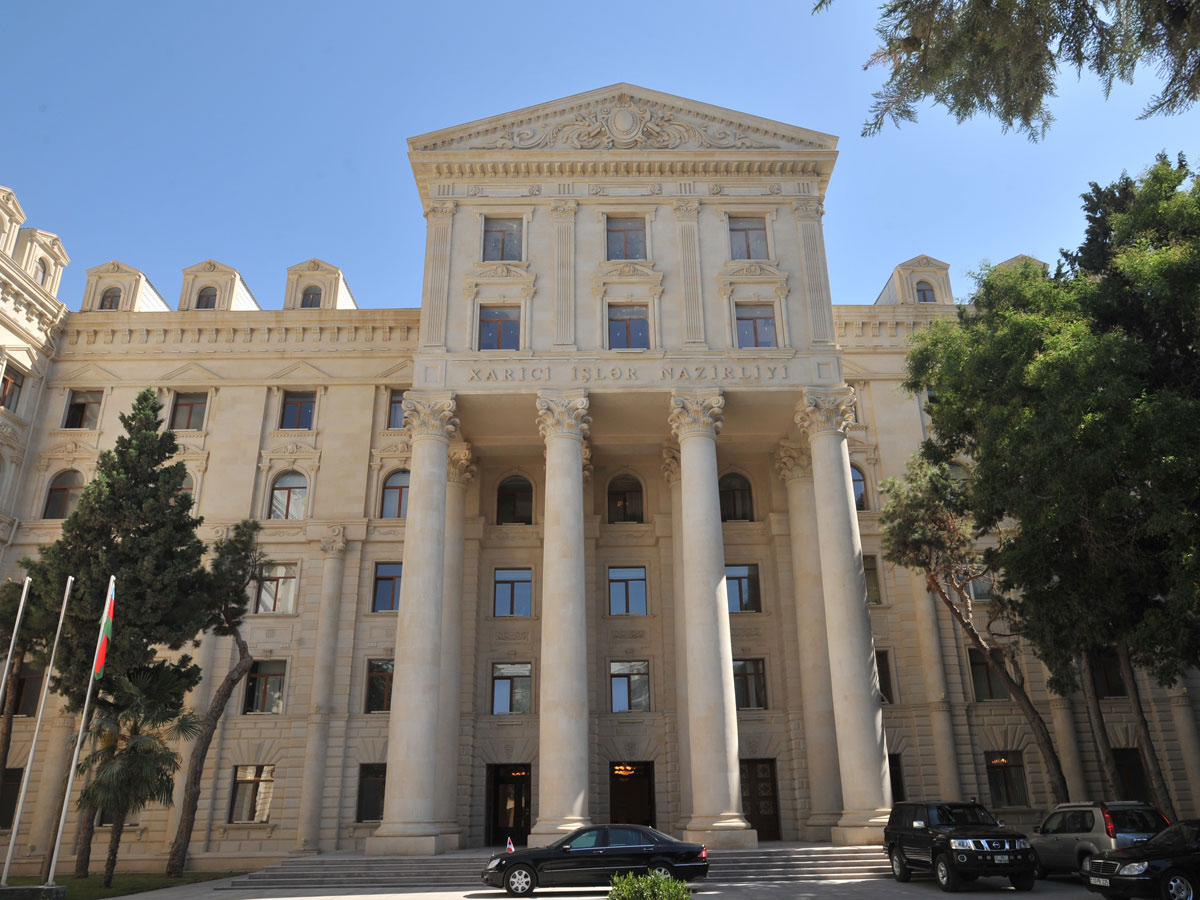Baku, Azerbaijan, Feb. 8
Trend:
Azerbaijan’s Ministry of Foreign Affairs deems it wrong to politicize the criminal case against Alexander Lapshin, a citizen of several countries who was extradited to Baku, over the illegal visit to the occupied Azerbaijani territories, the Foreign Ministry said in a statement.
This issue is of legal nature and must be reviewed from a legal standpoint, according to the statement.
Lapshin, despite warnings from foreign ministries of the countries whose citizenship he holds, illegally visited the Azerbaijani territories occupied by the Armenian armed forces and made appeals aimed at violation of Azerbaijan’s territorial integrity.
“Lapshin, knowing about the inclusion of his name in the list of people declared persona non grata, re-entered Azerbaijan’s territory with another passport in June of 2016. He openly stated that he committed these acts intentionally,” reads the statement.
Due to the fact that Lapshin’s actions hold open calls against the state and illegal border crossing, Prosecutor General's Office of Azerbaijan filed a suit under the articles of 281.2 (appeals against the state) and 318.2 (illegal border crossing) and put him on the international wanted list, according to the foreign ministry’s statement.
Law-enforcement agencies of Belarus detained Lapshin on Dec. 14, 2016 and he was extradited to Azerbaijan Feb. 7.
Lapshin’s case is being reviewed within the laws of Azerbaijan.
“Lapshin’s case once again indicates that Armenia fraudulently attracts foreign nationals to travel to Azerbaijan’s occupied territories and then tries to turn them into a tool of their political propaganda,” said the statement.
“The Azerbaijani Foreign Ministry once again calls upon foreign citizens to refrain from traveling to the Azerbaijani lands occupied by Armenia, as well as other countries to warn their citizens about legal consequences of such trips.”
The conflict between the two South Caucasus countries began in 1988 when Armenia made territorial claims against Azerbaijan. As a result of the ensuing war, in 1992 Armenian armed forces occupied 20 percent of Azerbaijan, including the Nagorno-Karabakh region and seven surrounding districts. The 1994 ceasefire agreement was followed by peace negotiations. Armenia has not yet implemented four UN Security Council resolutions on withdrawal of its armed forces from the Nagorno-Karabakh and the surrounding districts.






